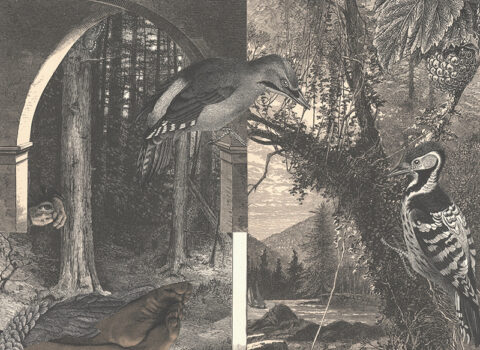From Eileen, by Ottessa Moshfegh, out this month from Penguin Press. Moshfegh’s first novel, McGlue (Fence Books), was awarded the Fence Modern Prize in Prose in 2014.
I remember the shower I took that morning because the hot water ran out while I dillydallied at the mirror inspecting my naked body through the wafting steam. I’m an old lady now. Like it does to everyone, time has blurred my face with lines and sagging jowls and bulging bags under my eyes, and my old body’s been rendered sexless and soft and wrinkled and shapeless. So just for laughs, here…

















































































































